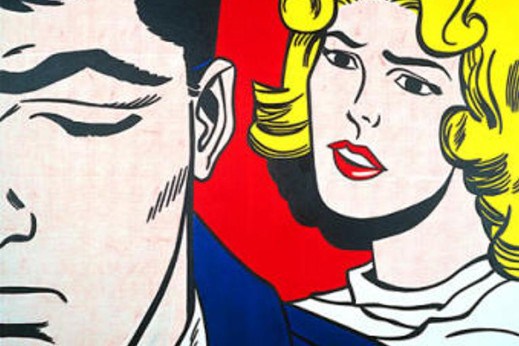If you’re like me, you may have witnessed a surge in the term “empath.”
It illuminates a label we may never have quite identified with before.
Perhaps you’ve studied up on what this means for you, what traits make you qualified to be one. Highly (sometimes overly) sensitive? Check. Always thinking of others’ needs? Check. Overwhelmed in intimate relationships? Check. Always thinking from others’ perspectives? Check, check, check.
I’d been called an empath many times, but I never really understood what it meant. What was the difference between being empathetic and being an empath? Was it even really a thing, or just some new-agey term someone made up, a new fad? I just couldn’t understand it.
Not until last week, that is.
Something had happened—a betrayal in my family. Relationships were damaged all around me. My brother was furious, my mother was crying on the phone, my direct community was severely impacted. The wrongdoer called to ask me not to think she was a bad person.
Immediately, I was torn.
I could understand all the opposing perspectives. I could understand the pain and self-loathing of the wrongdoer, the anger of the harmed parties. I could understand the blaming, the accusations, the fury. I could defend the name-calling, the acts of revenge, while simultaneously understanding the sadness and ache of guilt. It was difficult for me to find anger at anyone because I knew and could understand everyone involved in the situation.
So, I did what I always did. I put my feelings to the side and acted through the analytical part of my mind.
I curtly and tactfully, cut ties with the wrongdoer. I listened to the angry rants of the member who had been betrayed and hurt. I recommended tools for self-healing, provided consolation. I acted as the designated driver during the drunkenness of emotion around me, continuing to stay neutral in an effort to see all sides.
It was difficult, but it was something I had practiced through most of my life. Through my parents’ divorce, through arguments between friends, through my own conflicts with people I loved.
It was a skill I was proud of, yet sometimes confused by.
I knew I was expected to be angry too, and I was maybe even warranted to feel so, but I couldn’t quite find it. Where was that anger I was waiting for, the anger that everyone else could so easily develop? Where was my rage, my hurt, my sadness? Had I become some sort of emotionally disconnected robot?
It didn’t become clear to me until a friend and mentor told me blankly, “You are not these people’s counselor. This is personal.” This phrase stuck out in my mind, even for days after.
This is personal.
And then I realized what, for me, being an empath really entailed. Yes, I could see from everyone’s perspective, I could understand various sides, I could be incredibly empathetic and forgiving, but often at a large cost: I would lose me.
That night, I sat down to a meditation I had created for myself a few months prior. I focused on seeing things from my own eyes. So simple, so natural, yet something I often forgot to do. I focused on what I saw in front of me and anytime my mind wandered, often to identifying others’ feelings and perspectives, I brought my attention back until I had once again tethered myself to my own feelings and perspectives.
I began to feel angry. To feel betrayed. I began to feel hurt and sad and grieving.
But most of all, I felt guilty.
I felt guilty because I realized that all my empathizing and understanding had also led me to become an enabler.
How many times had I defended unhealthy behavior because I could see from their perspective? How many times had I allowed patterns of addiction, alcohol abuse, and damaging relationships to plague my friends because I didn’t want to confront them? Because I could see it from their view and didn’t want to judge?
I understood that there are times when empathizing with others is not helpful. There are times when being an empath means we are empathizing with the shadow selves in others, supporting behaviors that are eventually damaging. There are times when being an empath is most useful in being empathetic towards ourselves, to letting ourselves be angry and tell others the truth from our own perspectives.
It is a true skill to see things from other’s perspectives, but it is a skill employed in specific situations. As counselors, it is helpful. As human beings in outside affairs, it is helpful. But in our own personal relationships? Living through the eyes of others only helps bury the truth.
We are all here to hold each other accountable, and accountability does not always happen through holding the hand of someone else’s demon and saying we understand how it feels. Accountability happens through acknowledging when we, and those around us, do something that is wrong and letting those people know. Accountability often causes conflict, and conflict cannot be resolved if we are busy living in the opposite side, never confronting or explaining our true feelings.
For an empath who is often wrapped up in others’ emotions and perspectives, it is a strange return to one’s own perspective, like an empty house you forgot you owned. You walk through the corridors, remembering the outlines of your own opinions and emotions, remembering the blurred truths between right and wrong.
And after a few moments, you return to what really matters: you.
Author: Kasia Merrill
Image: Day DonaldsonFlickr
Editor: Catherine Monkman









Read 0 comments and reply